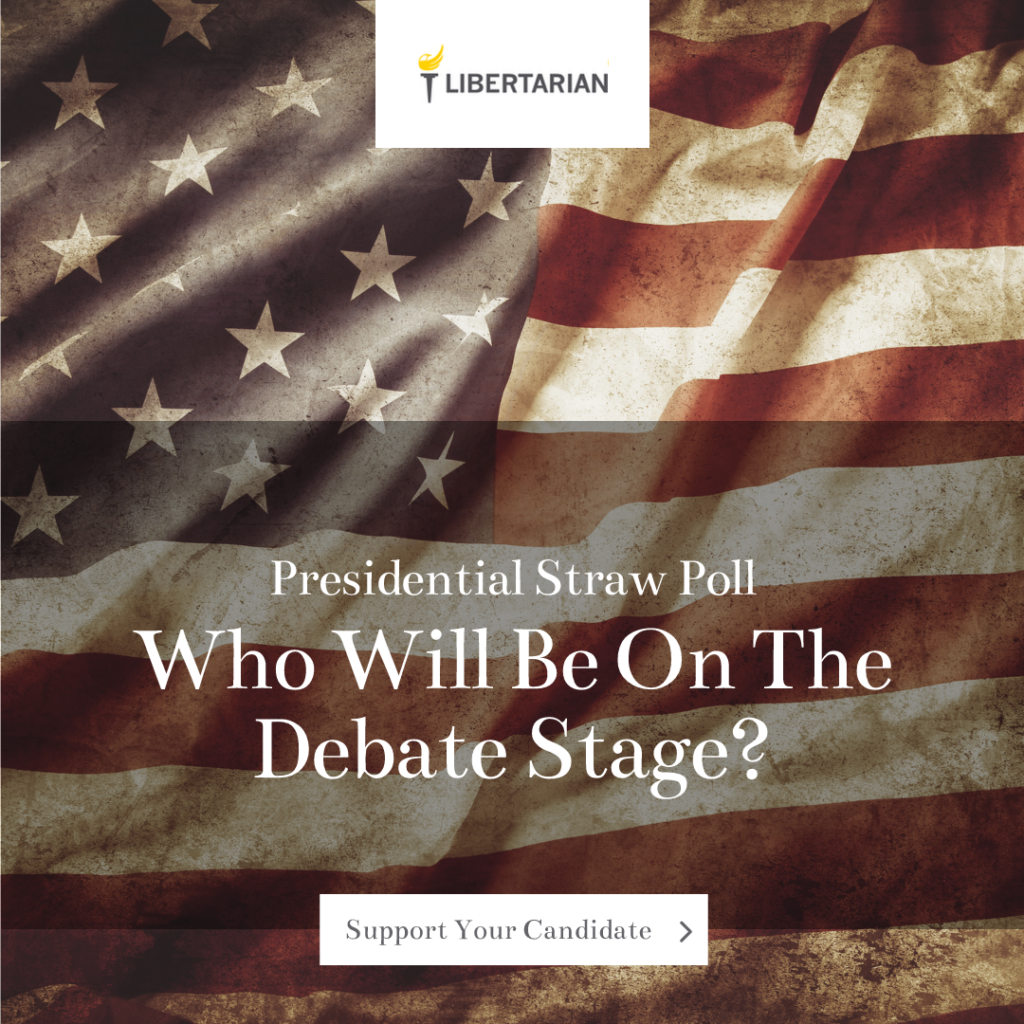
Paul Jacob
Opinions in this column are not necessarily those of the Libertarian Party or its affiliates.
Libertarians can take a large measure of credit for the most prolific issue on state ballots this year, legalization of marijuana or medical marijuana, as well as the issue completely absent from statewide ballots, gay marriage.
Since the party’s founding in 1971, Libertarians have supported legalization of marijuana, and all drugs, as well as equal rights for gays. Interestingly, it was through statewide ballot initiatives that both issues were thrust onto the national political agenda.
Gay marriage bans, proposed either by state legislatures or citizen initiatives, passed in more than 30 states. The success in banning same-sex marriage at the ballot box sparked litigation that culminated in a U.S. Supreme Court ruling striking down these once-popular bans. Yet the public votes also prompted sober deliberation among American voters, producing a significant shift in public opinion nationally and leading to several statewide votes in favor of gay marriage.
In the 1990s, voters began seeing medical marijuana measures on their state ballots and passing them with ample margins — well before there was any serious action in state legislatures. Today, 25 states have at least partially legalized marijuana, and in four states — Alaska, Colorado, Oregon, Washington — and the District of Columbia, pot is legal for recreational use.
Marijuana again kicks off the Top 10 List of this November’s ballot measures important to Libertarians.
1. Legalization of Marijuana (nine states)
Nine states have ballot measures regarding marijuana, with five of those states — Arizona, California*, Maine, Massachusetts, and Nevada — deciding whether to legalize cannabis for recreational use. Victories in these five would more than double both the number of states with legal recreational use, and the population affected.
Initiatives in Arkansas, Florida, Montana, and North Dakota would permit pot for medicinal purposes. Arkansas sports two somewhat competing medical marijuana measures, a statute and a constitutional amendment, with some arguing the amendment creates a pot cartel amounting to “crony capitalism.”
Florida’s ballot initiative must gain 60 percent of the vote to prevail. A similar Florida measure failed in 2014, while receiving 58 percent of the vote.
* Note: The California Libertarian Party opposes Proposition 64, the Adult Use of Marijuana Act (AUMA), noting that while it “has been a strong supporter of ending marijuana prohibition for over 40 years, this proposition would do more harm than good, damaging medical availability, and creating additional criminal offenses and regulations.”
2. Nonpartisan Primary or “Top Two”: Amendment V (South Dakota)
South Dakotans will decide whether to scrap the state’s current party primary system for a nonpartisan primary allowing only two candidates to proceed to the November election. This so-called nonpartisan primary is known as “Top Two,” since only the top two vote-getters move past the low-turnout primary for a runoff during the high-turnout general election.
The Libertarian and Green Parties have long campaigned against Top Two, which obviously marginalizes “third” party candidates and their ideas. “Instead of enhancing voter choice,” argues California-based columnist Steven Greenhut, “this reform significantly contracts it.”
Top Two is used in both California and Washington state, to very mixed reviews. Studies show it doesn’t lead to more moderate officeholders — a questionable goal for public policy to begin with. Nor has Top Two increased voter turnout.
“California turnout declined more than that in any other state between November 2010 and November 2014,” reports ballot-access expert Richard Winger. Los Angeles-based journalist Joe Mathews called Top Two a “disaster.”
In 2014, well-funded initiative efforts to bring Top Two to Arizona and Oregon were defeated at the ballot box by whopping two-to-one margins. South Dakota Libertarians should help defeat Amendment V as well.
3. Ranked Choice Voting : Question 5 (Maine)
Maine’s governor has been in the news recently for a profanity-laced tirade he left on a legislator’s answering machine. Gov. Paul LePage has been controversial, but he has also been elected to two terms by garnering a plurality, but not a majority, of the state vote.
In fact, in 42 years, Maine hasn’t elected a governor obtaining a majority of the vote.
If Mainers back Question 5, the “No more wasted votes” initiative, the state would be the first to use a voting system wherein voters rank their choices. The idea behind ranked-choice voting is that no candidate should be elected until receiving a majority. When a last-place candidate is eliminated, the second-choice votes from those who had picked that eliminated candidate as their first choice are reallocated to the remaining candidates. This process continues until one candidate has gained a majority of the votes.
The big advantage for Libertarians and other alternative-party or independent candidates is that ranked-choice voting wipes out the argument that by voting for a candidate one believes in, but who is unlikely to win, one’s vote is wasted. Under the ranked-choice system, that vote is tallied and counted for the candidate one most supports, but it can also, if no candidate garners a majority and the Libertarian is eliminated, go on to count for another candidate one prefers over others.
In such a system, voters might be far more inclined to support Libertarian Party candidates.
4. Reclassifying Drug and Property Crimes as Misdemeanors : State Question 780 (Oklahoma)
State Question 780 also relates to the drug war. The initiated statute would take numerous crimes now classified as felonies — most notably, regarding drug possession — and demote those offenses to mere misdemeanors. The measure would save the state considerable funds, in addition to saving real people from being labeled felons and losing many rights, for life. Currently, one of every 12 Oklahomans is a felon.
5. Minimum Wage (five states)
Voters in four states — Arizona, Colorado, Maine, and Washington — will decide whether to hike their state’s minimum wage. In a fifth state, South Dakotans will vote to approve or reject a law passed by the state legislature creating a lower minimum wage for those under 18 years of age.
Ballot measures upping the minimum wage have been a perennial device to boost Democratic Party turnout, and the initiatives rarely meet any organized opposition. Libertarians understand that minimum-wage laws are arbitrary restraints on the freedom to contract of both employees and employers. Moreover, those hurt most are the poor and low-skilled workers yearning for an entry-level job.
Libertarians could play an outsized role in this debate by actively opposing these ballot initiatives on moral principle, while illuminating the harm a wage floor can inflict on those the regulation is allegedly supposed to help: the poor and disadvantaged.
6. Make Constitutional Initiatives More Difficult: Amendment 71 (Colorado)
Bipartisan establishment forces are behind Amendment 71, which would require constitutional amendment ballot initiatives to (a) qualify their petitions not only statewide but also in each of the 35 state senate districts, and (b) win a supermajority of 55 percent in order to prevail.
By requiring success in each of 35 separate senate-district petition drives on top of meeting the current statewide signature threshold, the new requirement dramatically increases the cost and difficulty of qualifying a ballot measure. The impact will be far more problematic for grassroots efforts than for powerful interests. Moreover, the measure allows a well-financed opposition — special interests, big business, big labor, or all of the above — to defeat reforms by running negative campaigns designed to hold support down to 54.9 percent or less of the vote. One opponent dubbed it “the Rich Guy Protection Act.”
A coalition of grassroots groups opposing Amendment 71 includes several Libertarian Party activists and is co-chaired by Common Cause and the Independence Institute.
7. Revision of State Campaign Finance and Lobbying Laws: Initiated Measure 22 (South Dakota)
This initiative statute would create an appointed state ethics commission with broad powers, a new system of public financing through which taxpayers could earmark public funds to candidates of their choice running for state or legislative office. It would also constrain further the dollar limits on campaign contributions and create more stringent disclosure requirements for candidates and ballot measures.
Initiated Measure 22’s use of government funding for political activity, while also limiting private contributions and requiring disclosure that threatens to chill First Amendment activity, is anathema to Libertarians.
8. One Percent Sales Tax: State Question 779 (Oklahoma)
This initiated constitutional amendment would hike the state’s sales tax another penny on the dollar — a 22-percent increase over the current rate of 4.5 percent — mostly to fund pay raises for teachers but also to fund other programs aimed at “addressing teacher shortages,” improving “reading in early grades . . . high school graduation rates, college and career readiness, and college affordability . . . and increasing access to voluntary early learning opportunities for low-income and at-risk children.”
Despite being one of the nation’s most anti-tax states, Oklahoma has managed to maintain a healthy public-education budget. So a victory here for a measure adding a regressive tax increase to the state constitution, hitting the poor hardest — shopping in some neighborhoods could cost an extra 12 cents on every dollar — would set a terrible example and greenlight tax hikers in the Sooner State — and across the country.
9. Tax the Rich (Maine and Oregon)
Two statewide ballot measures seek to tax the rich. In Maine, Question 2 would slap a three-percent surcharge on the portion of individual incomes above $200,000 per year and use the funds for education. Measure 97 on Oregon’s ballot would establish a tax of 2.5 percent on the portion of corporations’ gross sales in excess of $25 million per annum. The Oregon Legislative Revenue Office has calculated that corporations with sales of $20 million and below would be unaffected, while those with $70 million or more in sales would see a whopping 23-fold tax increase.
The idea behind both the Maine and Oregon tax measures is to tax the rich. Libertarians will oppose both measures, because taxpayers and businesses shouldn’t be forking over more money to government, nor should success be specifically punished.
10. Mandated Condom Use in Pornographic Films: Proposition 60 (Calif.)
Lastly, California’s Proposition 60 superbly demonstrates the absurd lengths government can go to in regulating behavior. This statutory initiative would mandate that adult-film actors wear condoms during sexual-intercourse scenes. The measure also requires film producers to pay for medical examinations for performers, and it allows any citizen to sue to enforce the various provisions of the ballot measure.
It’s noteworthy that the Golden State’s Republican and Democratic Parties have joined LP California in opposing the proposition. Also against the initiative are the Adult Film Advocacy Committee and many civil-rights and public-health organizations, who charge that the measure is designed not to protect performers but to enable a “bonanza” of lawsuits against the adult-film industry.
Libertarians have a lot of opportunities to make a difference this election, including on these and the rest of the 160 statewide ballot measures in 35 states. By supporting freedom-enhancing ballot measures and opposing those which expand big government, Libertarians can show the public our principles, and start to fashion better public policies without waiting for election of Libertarians to the executive branch or state and federal legislatures. •
Paul Jacob is a longtime LP member and former national director. He currently serves as president of Citizens in Charge, a pro-initiative advocacy group. He writes commentary daily at: ThisIsCommonSense.com



